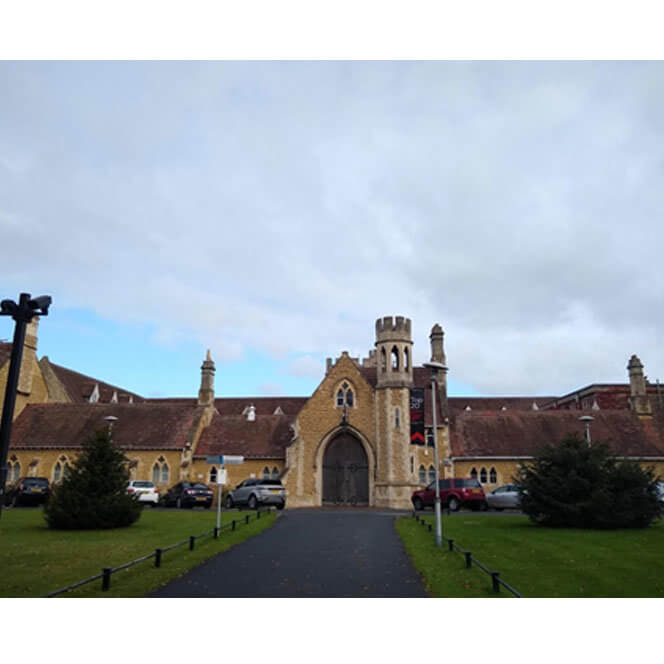Rewind to a time before the pandemic (if you can!), November 2019, I was informed I had successfully received funds to host an ECF event at the University of Gloucestershire. Fast forward to 1 July 2021, over thirty delegates attended the event entitled ‘Situating Austerity- The impact of locality on lived experience in austere times’ not on the beautiful Francis Close Hall campus in Cheltenham, however, but on Zoom, a modality we have now become accustomed to. The day was a vibrant, collegial and stimulating presentation of some fascinating research being undertaken by ECRs that centralises experiences of austerity. Speakers represented over 11 different institutions, in the UK and beyond, and covered a range of topic areas that illuminated the intersectional and extensive impacts of austerity. We were also joined by the excellent Dr Kate Haddow (Teesside University) and Dr Sarah Marie Hall (University of Manchester) as keynote speakers, Kate herself being an ECR who recently completed her PhD. This post aims to give an overview of the event and to share some of the incredible work that ECRs are doing in this area.
Hidden food insecurity, foodbanks and beyond
We kicked off with an engaging keynote from Kate Haddow, who captured the audience’s attention with a gripping account of her ethnographic research in Free Food Places in Middlesbrough. Kate’s work highlights the nature of hidden food insecurity and its interconnected relationship with deep poverty and social exclusion, which we can only assume has been exacerbated by the pandemic. Kate’s work engaged mostly with men who accessed the Free Food Places, reflecting closely on the gender dynamic of the relationships with participants. In contrast, Hannah Slocombe (University of Liverpool) presented on the local, community-run responses to food insecurity in Merseyside, with a focus on the disproportionate numbers of women who run and access these services. Moving further south, we heard from Stephanie Denning (Coventry University) whose ethnographic research analysed the affective atmospheres of three food banks in the South-West and the Midlands. These rich, qualitative projects highlight the everyday realities for the food insecure across England.
We also garnered a UK-wide picture of the impacts of austerity from two speakers. Kate Harrison (University of Southampton) drew upon interviews with the public to assess the impacts of austerity within and across local authorities across the country, considering levels of pre-existing deprivation. Katie Fahy’s (University of Liverpool) research explored the spending trends of Cultural, Environmental and Planning services across 378 local authorities in Great Britain. Similarly to Kate, Katie’s research found a disproportionate impact of spending cuts for areas with higher baseline levels of deprivation, creating a public health risk.
Health, disability and life course
The first panel saw Lisa Davis (University of Central Lancashire) present autoethnographic insights into the lived experience of (in)accessibility. Lisa’s raw account demonstrated how austerity can be used as a tool to continue experiences of spatial inequality and social exclusion for disabled people. Next, Adam Mars (Lancaster University) provided an intersectional, phenomenological account of men’s lived experience of social prescribing in the ‘post-industrial’ North of England, observing the relationship between heightened spending cuts and men seeking wellbeing through social prescribing. Also in Northern England, Dan Taylor (Open University) presented ethnographic research on health inequalities and care in Gateshead, noting the feminisation of care and calling for an ‘ecology of care’ to centralise care within democratic political thought. Sarah Marie Hall’s keynote, similar to the above speakers, reflected upon an intersectional approach within the North East of England. Utilising Oral Histories and Futures, Sarah outlined the embedded and enduring impacts of austerity that live on beyond the span of policies. One example of a living legacy of austerity was decisions made by women about whether or not to have children, due to financial circumstances. This illustrates how austerity imprints upon the biographies of those most harshly hit by reduced welfare and public service funding.
Place, belonging and borders
Creativity was central to considering place and austerity. Catalina Martin (University of Edinburgh) utilised participatory visual methods with LGBTQ+ young people in Scotland to explore how austerity intersects with their understandings of home. The theme of marginalisation and social exclusion continued with Deena Dajani (International Institute for Environment and Development) who outlined the dehumanising impacts of austerity on migration narratives within London and Amman. Construction of hierarchies of who can/not belong are entrenched through austerity measures whilst regeneration pushes out lower-income communities. Shelly Asquith (University of Leeds) presented a social semiotic analysis of images from a site of gentrification, Elephant and Castle, where space is used both to reinforce and resist processes of gentrification. Rich and nuanced understandings of place were also illustrated through Joshua Blamire’s (University of Exeter) research. This research demonstrated how constructions of place by residents of the UK’s highest EU leave-voting town (Boston, Lincolnshire) were far more complex than stereotypes suggest.
Young people and education
Finally, we turned to education and young people. Rosalie Warnock (QMUL) begun by outlining how a decade of austerity has stripped special educational needs and disability support in a London borough. Rosalie’s work highlights the micro-spatial elements of inequality, as even when living in the same locality, access to resources can vary. Stacey Mottershaw (University of Leeds) also discussed the importance of locality in relation to higher education admissions. Stacey’s work similarly noted how geography and locality influence educational opportunities and outcomes, especially in ‘Low Participation Neighbourhoods’. Additionally, Sander van Lanen (University of Groningen) described the emergence of austerity in different spaces and how this reshapes places, with a focus on urban youth in Ireland. Sander’s research pays attention to the dialectical relationship between austerity and geography and the embedding of austerity in urban spaces that young people inhabit.
This short piece does not do justice to the rich work being conducted by ECRs but hopes to provide a platform for this research. I would like to thank all the presenters and attendees, as well as the BSA, Sandria Charalambous and Donna Willis for their support with this event and blogpost.
Dr Louise Folkes is a Lecturer in Social Sciences at the University of Gloucestershire. Twitter: @louisemfolkes


